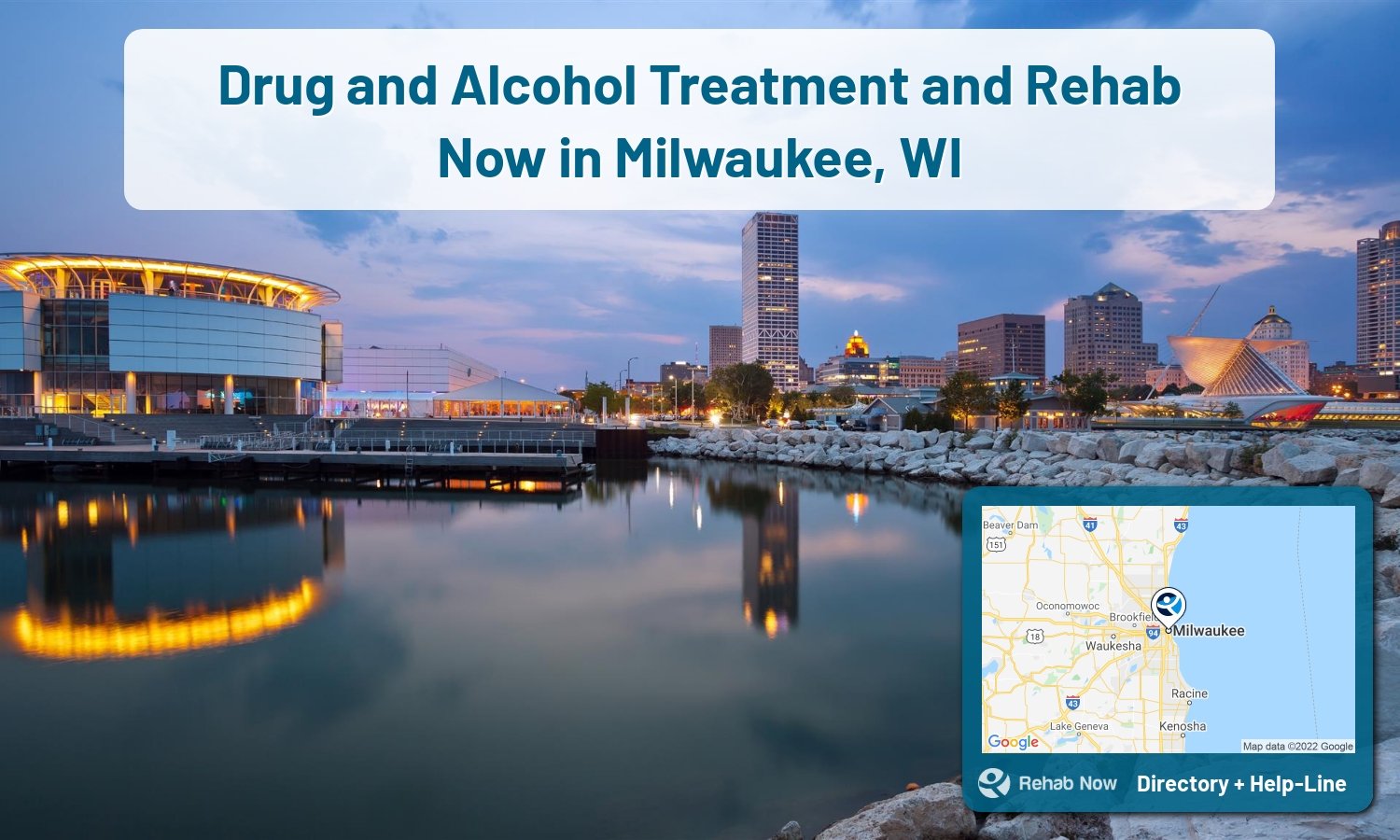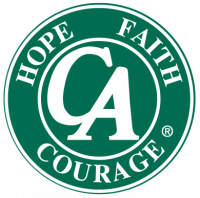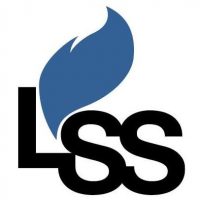Find An Addiction Rehab Center In Milwaukee, Wisconsin Today
Drug abuse and addiction is a severe problem in Milwaukee. Milwaukee, Wisconsin has one of the worst opioid addiction problems in the state. According to the 2016 National Survey on Drug Use and Health (NSDUH), there were 552,000 people in Milwaukee who needed treatment for alcohol or drug abuse. That included 152,000 adolescents aged 12-17. There was also a rise in heroin users from 91,000 in 2010 to 126,000 in 2016.
Milwaukee is known to have a high rate of violent crime, not only are people getting abused physically, many are also being emotionally manipulated by drugs. This is especially true in cases where addiction has already taken over. Drugs are known to make people do things they might not normally do, putting the drug user and those around them at risk of serious injury or even death.
Check out a facility that fits your needs on our list below, or call/email us for individualized support. Through a number of opioid and alcohol recovery programs available in Wisconsin, healing and a healthier life are possible in Milwaukee.
One Call Makes This So Much Easier
We will help you find treatment based on your location, budget, and specific needs and help you get started safely.
Free + Confidential Consultation
Browse 135 Centers in Milwaukee, Wisconsin
Group Rehabcare
Group Rehabcare is an Addiction Treatment Facility in Milwaukee, WI that offers comprehensive services to those struggling with alcohol, opioid, and drug addiction, ranging from individual and group therapy to supportive housing and vocational training.
Making Connections
Making Connections is an addiction treatment facility in Milwaukee, WI offering drug rehab programs with various levels of care, detoxification, therapy, counseling, support groups, and aftercare programs designed to help individuals overcome addiction and achieve long-term sobriety.
27th Street Clinic
The 27th Street Clinic in Milwaukee, WI offers a comprehensive drug rehab program for those looking to get sober, providing three levels of care – detoxification, residential treatment, and outpatient services – alongside medication-assisted treatments, individual counseling, 12-step programs, group therapy, and recreational activities.
Genesis Detox
Genesis Detox is an addiction treatment facility in Milwaukee, WI, offering a multi-step drug rehab program beginning with detoxification, followed by a range of levels of care, therapy sessions, educational resources and addiction specialists to support individuals in achieving long-term sobriety.
Al Anon
Cocaine Anonymous - CA
Goodwill - Adult Centers
Lutheran Social Services - Counseling
Imani Alcoholism and Treatment
AA - Alcoholicos Anonimos
Galano Club
AA - Alcoholicos Anonimos
AA - Alcoholicos Anonimos - Grupo Renacimento
AA - Alcoholicos Anonimos - Oficiana Intergrupal
AA - Alcoholics Anonymous
Comprehensive Drug and Alcohol Treatment in Milwaukee, WI
Milwaukee has been described as “the poorest big city in the US” by “Forbes” and the U.S. Census Bureau declared it to be the poorest city in terms of residents living below poverty level, currently ranking 7th of 69 (2011). As of December 2013, the city’s unemployment rate was 6.6%. Milwaukee has also been listed by “Kiplinger” as one of the five most tax-friendly cities in the United States. Ranked by the 2008 recession, Milwaukee has experienced a rebound with significant improvement in employment, particularly in the sectors of healthcare and manufacturing.
A study undertaken by the University of Wisconsin-Milwaukee for the United States Conference of Mayors indicated that Milwaukee had the highest rate of illegal drug use in the country, with 35% of the population 12 years old and over reporting recent usage. This may be due to numerous factors including unemployment, poverty, and size.
The number of drug treatment admissions increased 26% between 1998 and 1999. The Milwaukee-Racine area has the nation’s highest HIV infection rate among women, according to a study by the federal Centers for Disease Control and Prevention released in September 2005. This finding was attributed to prostitution in Milwaukee, which is concentrated along North Avenue on the city’s north side. The report also stated that over half of female prostitutes living with HIV are drug users.
Lack of education, low income, and lack of access to health care could all be considered social determinants influencing the state’s increasing rate of sexually transmitted diseases including HIV. This means that because many Milwaukee residents lack access to quality healthcare or free clinics, they do not have the opportunity to get tested for STDs and HIV/AIDS. This lack of early detection can have a significant impact on an individual’s health, which can be deadly when left untreated.
Heroin Epidemic Ravaging Milwaukee
Heroin serves as a serious problem within Milwaukee County. In 2012, there were 1,029 emergency calls involving heroin, and of these calls 10 deaths were reported. Though overall numbers are relatively low compared to other narcotics, the impact on the community has been severe enough for Milwaukee County Sheriff David Clarke Jr. to declare a “state of emergency” in dealing with opiate addictions in the city.
In 2011 there were over 1,100 emergency calls for heroin overdoses in Milwaukee county.
In May 2016, a new anti-heroin program was adopted by the City of Milwaukee Health Department named “Do No Harm”. The purpose of this program is to reduce opiate related deaths and holds opioid treatment clinics accountable through better regulation and increased access to Naloxone (Narcan) which reverses the effects of opiates within minutes.
The Milwaukee Health Department also created an Opioid Task Force to address this epidemic head on and ensure the community is educated about how to use Narcan properly. The goal of this program is preventing overdoses by increasing access to Narcan nasal spray, educating people on dangers of opioids, and how to use it; and we working with health care providers and community organizations to develop non-opioid pain treatment options.
In addition, the Health Department also offers free Naloxone trainings throughout Milwaukee County at various times and locations. People can call 414-286-8620 for more information on these trainings, including dates, times and locations.
Milwaukee is not the only county with this problem. The Wisconsin Department of Health Services released a report in September 2016 regarding opiate related deaths for 2015. This data was collected from coroners across the state who reported 535 cases of death where either heroin or prescription opioids were factors. This number represents an increase of 123 cases from 2014. The report also stated that the rate of deaths related to opioids were nearly three times that of homicide or motor-vehicle traffic fatalities.
The prevalence of this trend is evident across the state and in Milwaukee County, there are many organizations doing tremendous work to combat this problem. It is important for individuals going through addiction, family members, and community members to know that help is available through many resources. One of the most important things they can do is educate themselves on how addiction works in order to better understand what they are going through. This will open up conversations about treatment options when the time comes for professional help.
There are both private and public treatment centers in Milwaukee with inpatient and outpatient services. There are no limitations in regards to an individual’s health insurance plan or financial situation in relation to treatment options. Anyone who is ready to take the step toward sobriety can find a rehab center that will accommodate their needs accordingly.
No matter where you live in Wisconsin, we are confident there is a drug rehab center that can help you overcome your addiction. We can help you find treatment based on your location, budget, and specific needs and help you get started safely.

Additional Treatment Centers in Wisconsin
Wisconsin has some of the highest rates in the United States for both adolescent and adult substance abuse. Since 2009, the state has been experiencing the same escalating rates of drug abuse and addiction as the rest of the country. The major concerns are the misuse of prescription painkillers and the escalating number of deaths due to alcohol-related liver disease.
Still haven't found the right recovery center? Browse nearby Wisconsin cities.
- De Pere, WI (87.5 mi.)
- Platteville, WI (130.9 mi.)
- Washburn, WI (280.6 mi.)
- West Allis, WI (11.9 mi.)
- Eau Claire, WI (208.6 mi.)
- Neenah, WI (73.5 mi.)
- Chilton, WI (59.1 mi.)
- Abbotsford, WI (168.7 mi.)
- Independence, WI (190.5 mi.)
- Rhinelander, WI (183.9 mi.)
- Kaukauna, WI (77.1 mi.)
- Richland Center, WI (122.3 mi.)
- Milwaukee, WI (135)
- Madison, WI (70)
- Green Bay, WI (31)
- Appleton, WI (30)
- Eau Claire, WI (25)
- Waukesha, WI (24)
- La Crosse, WI (24)
- Kenosha, WI (19)
What types of treatment are available in Milwaukee, Wisconsin?
Recovering from any type of substance abuse can be a long process, but it is the most rewarding experience any addicted person will ever go through. After completing the initial detox and withdrawal, you will often be required to engage in a highly comprehensive addiction therapy program. While enrolled in a professional and effective drug rehab in Milwaukee, the following are some of the treatment services that you can expect to receive:
Opioid Addiction
Opioids are a set of drugs prescribed for pain relief. Opioid addiction for Wisconsin residents refers to the compulsive seeking of opioids, even when they are not required medically. Treatment involves medication-assisted therapy in which medicines, counseling, and behavioral therapies are all utilized.
Inpatient Program
Inpatient addiction treatment can take many forms, including inpatient detoxification, residential rehabilitation and partial hospitalization. Being an inpatient allows a person in early recovery to focus completely on getting well. Inpatient treatment is highly structured, with daily group and individual counseling sessions.
Milwaukee inpatient centers help people overcome their physical dependence on drugs or alcohol with medical supervision. There are numerous programs available that will provide you the best chance for success. Loved ones can also attend certain programs to receive support, guidance and encouragement throughout the entire process.
Outpatient Treatment
An outpatient treatment program is set up to help with alcohol or drug addiction, or a co-occurring disorder. The patient must attend the facility for their therapy and other programs but are able to return home each night. The frequency of mandatory attendance decreases after much of the program is complete.
Milwaukee Outpatient Rehabs are ideal for individuals who have completed inpatient care and are now in the early stages of recovery. Outpatient programs provide an individual with structure and guidance, while allowing them to maintain their normal schedule.
Individualized Care
Treatment programs include individual therapy for the greatest chances of success. Customized individual therapy is counseling involving you and your counselor. Individual therapy leads to greater peace and understanding about your triggers for addiction.
There is no one-size-fits all answer for Drug Addiction Treatment in Milwaukee, there are numerous rehab centers and programs available to choose from. Not every rehab facility is the right fit for you or your loved one, so it’s important to do your research and look into as many alternatives as possible before committing to a treatment center.
Rehab is a combination of detoxing the body, rehabilitation, and recovery. There is therapy, aftercare, and support during the entire process. While substance abuse can take over a person’s life, it is something that can also be overcome with help from professionals at Wisconsin rehabs.
View options, availability, treatment methods, and more, for drug rehab and alcohol treatment in Milwaukee, Wisconsin (888) 674-0062.



